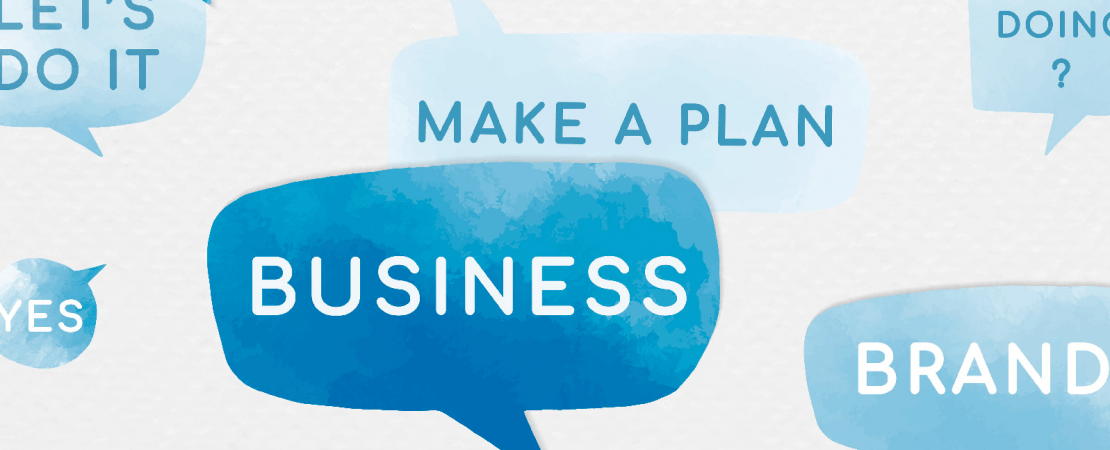The conferences are usually huge events. To organize them successfully you must know how to transmit the correct message to the participants. Here we detail 5 steps to organize a perfect conference.
1. Be sure about the goal and the agenda of the event. First of all, you must have clearly defined goals that you intend to specify with the organization of the event. Knowing in advance what the objectives you want to accomplish, will help you to execute your actions in the right direction.
2. Detail your budget. In order to plan the conference well, you must know how much money you can spend and what you will spend. Make a list that details all the items to be taken into account in the budget and how much money they will cost. Find out the prices of several suppliers to choose the one that suits you best.
3. Choose a venue. When you go places, keep in mind the number of participants, the convenience of the location,and if it has parking available or access to public transport.
4. Select your suppliers. In addition to the catering for the coffee break, you should take into account the needs of sound,music, furniture and communication for the event.
5. Hire temporary personnel. Think about how many people you will need to work during the conference and contact them well in advance. Try to assign the tasks in a clear way so that everyone can perform their function as well as possible.
If all this seems too much to handle, contact us! We are experts at organizing events.
Organizing conferences and events requires significant resources, time, and coordination. Even with the perfect conference planning template, pulling off a successful event can require anywhere from several months to over a year of preparation. Beyond that, you also need to cultivate your convention planning skills. Otherwise, you run the risk of developing tunnel vision — emphasizing unnecessary aspects while leaving critical factors unattended.
To ensure your conference goes off without a hitch, we’ve put together this conference plan template to help you learn how to plan a conference. It includes a checklist to help keep your thoughts and timelines in order. Conference event planning doesn’t have to consume all of your time, thanks to this conference planning guide.
What is Conference Planning?
If you’re organizing an event designed to share ideas, debate views, present a vision or spread awareness about a subject, you’ll likely end up hosting a conference. While the concept of gathering a group of people to exchange information seems simple enough, there’s a significant amount of effort that goes into organizing the event.
This is where conference planning comes into play. By successfully planning a conference, you can build up your company’s brand while creating a wider network, giving you and your business further opportunities to develop and grow.
Types of Conferences
First, you need to decide on the type of conference you’re planning. Conferences serve a variety of purposes and can vary in size, subject matter, and target demographic. However, if your event becomes too large, then you may be looking at planning a convention.
Sales Conference
Larger companies often hold annual, internal sales conferences to kickstart each season. Conference planning for internal sales events usually centers around staff training, new product launches, company performance reviews, and corporate goals. Through a sales conference, you can energize your team and inspire them to work more collaboratively. It’s a simple way to build passion within a team and spur them on to achieve greater results.
Academic Conference
Academic conferences provide an excellent venue for receiving feedback on your latest academic works. While presenting findings in a public presentation can be intimidating, it’s a great way to receive both critique and compliments on your work. Conferences designed for your academic field can also catalyze networking with peers who may be working on their own related research. You may even have the opportunity to meet one of your academic heroes.
Business Conference
Business conferences act as a meeting ground for different industries to exchange ideas, synergize, and collaborate. Through a business conference, you can meet people in your company or industry, and go over new trends affecting the sector.
How to Plan a Conference: A Step-by-Step Guide
The art of conference planning is a careful balancing act. Executing the perfect event is a long and arduous process, requiring a strong eye for detail.
Step 1: Define the Goals of the Conference
Before you begin organizing your conference, you first need to decide on the event’s purpose and why people should attend. Once you establish the main idea behind the conference, you can begin answering other key questions, such as:
- What’s the conference’s target attendee demographic?
- When’s the best time to host the conference?
- How many people will be invited to attend in-person? Will there be a means to participate online via a virtual event platform?
- What’s the target revenue goal that the event needs to reach to be considered successful?
- How much should entry cost?
- Where should the conference be held?
Step 2: Creating a Budget
The success of a conference can hinge on its budget. Budgeting is usually the most daunting part of conference planning, but it creates the foundation for the remainder of your plan.
When creating a budget, make sure to include the following:
- Items: When first organizing your budget, you want to ensure that you’re accounting for everything that incurs a cost. Having your list itemized from the beginning will make the task significantly easier. You should avoid grouping items together, such as food and alcohol, because you might need to start making cuts if you exceed your budget. Large costs such as the venue, refreshments, and A/V equipment are easy to remember and track. However, it’s equally important to remember less tangible items such as marketing materials, travel expenses, and taxes, as they can quickly devour a budget.
- Descriptions: Each item should be followed by a description explaining why the item is necessary. This is especially helpful if a supervisor needs to sign off on the budget allocation.
- Quantity: Keeping track of the quantities you need is important. This can make adjusting for an unexpected increase or decrease in attendance a quick process. It can even help you determine the quantities needed for future conferences.
- Estimated Costs: This section is designed to give you an approximation of the overall budget, indicating whether you’re above or below your limit. If you receive a price list from the vendor, keep in mind that it may not account for gratuities, service fees, or tax. To help decrease your estimated costs, you can contact vendors and suppliers to go over their pricing options.
- Real Costs: This is what each item for the event actually costs. It can help you build a better template for your next event.
- Budget Padding: Remember Cheop’s Law: “Nothing ever gets built on schedule or within budget.” In other words, you’ll want to allocate some extra funds for unplanned incidentals.
Step 3: Select the Vendors and Venue
After you’ve created a budget, you’ll need to speak with vendors and venue owners to determine if they’re available and the right fit for your conference. While the list of options may seem long, you can quickly cut it down by skimming their reviews and evaluating their online presence. Once your list is manageable, you can start accepting quotes. When submitting a request for a quote, ensure you’ve included any special requirements your event may have, including:
- Special Access Needs
- Dietary Restrictions
- Number of Attendees
While your budget will dictate your buying power, don’t automatically go for the cheapest option.
Step 4: Find Speakers
The next step on your conference planning journey is finding interesting speakers to entertain attendees during the event. You’ll want to find speakers who have delivered speeches at similar conferences and contact them to see if they’re an appropriate fit for your event. You can begin by having them send proposals or abstracts about their presentations, allowing you to thin the herd.
You can also ask your attendees who they’d like to see at the event. This helps you narrow down your choices and begin building a rapport with the attendees. After all, the conference is being designed with them in mind.
Step 5: Find Sponsors
Conference planning depends on finding sponsors. As with every step of this process, you’ll want to find a sponsor that’s right for your conference. You can start the search by reviewing sponsors from similar events. If you see some companies that you feel could benefit from investing in your conference, reach out. Find out which company representative can decide to sponsor the event, and begin a dialogue around what your conference can do for their business. This will lead to creating a sponsorship package valuation.
Step 6: Marketing
Once you’ve set the time, venue, vendors, speakers, and sponsors, you’re in the home stretch. You’ll just need to create several marketing campaigns to get the word out. Start with email and social media campaigns, as well as a branded website with a clear call-to-action (CTA) on the landing page. These campaigns should continue until the day of the event. You’ll need to begin with a brand awareness marketing campaign, moving through the sales funnel until you reach event reminders. If you’ve finished planning the conference planning with enough lead time, you could even offer early sign-ups to generate traction.
Step 7: Debriefing
Once the dust has settled and your conference has concluded, don’t wait too long to request attendee surveys. Finding out which aspects attendees enjoyed or disliked can go a long way in helping you develop your next conference.
At the same time, you’ll want to begin compiling video snippets, keynotes speeches, and drafting supporting blog posts to keep your conference top-of-mind and boost its credibility for next year.
Why SmartWorks is the Premier Convention Planning Company
If you have the hefty task of bringing an event to life, you can relieve the pressure by working with a convention planning company, like SmartWorks. As the premier conference planning company, we excel at making your event a breeze from start to finish thanks to our high-end technology.
With the help of SmartWorks, you don’t have to worry about the logistics of your event planning. Leave it to our extensive network of trusted vendors around Europe. SmartWorks has the expertise to take your conference to the next level. Contact us today and let our team of professionals save you time, energy, and money.









